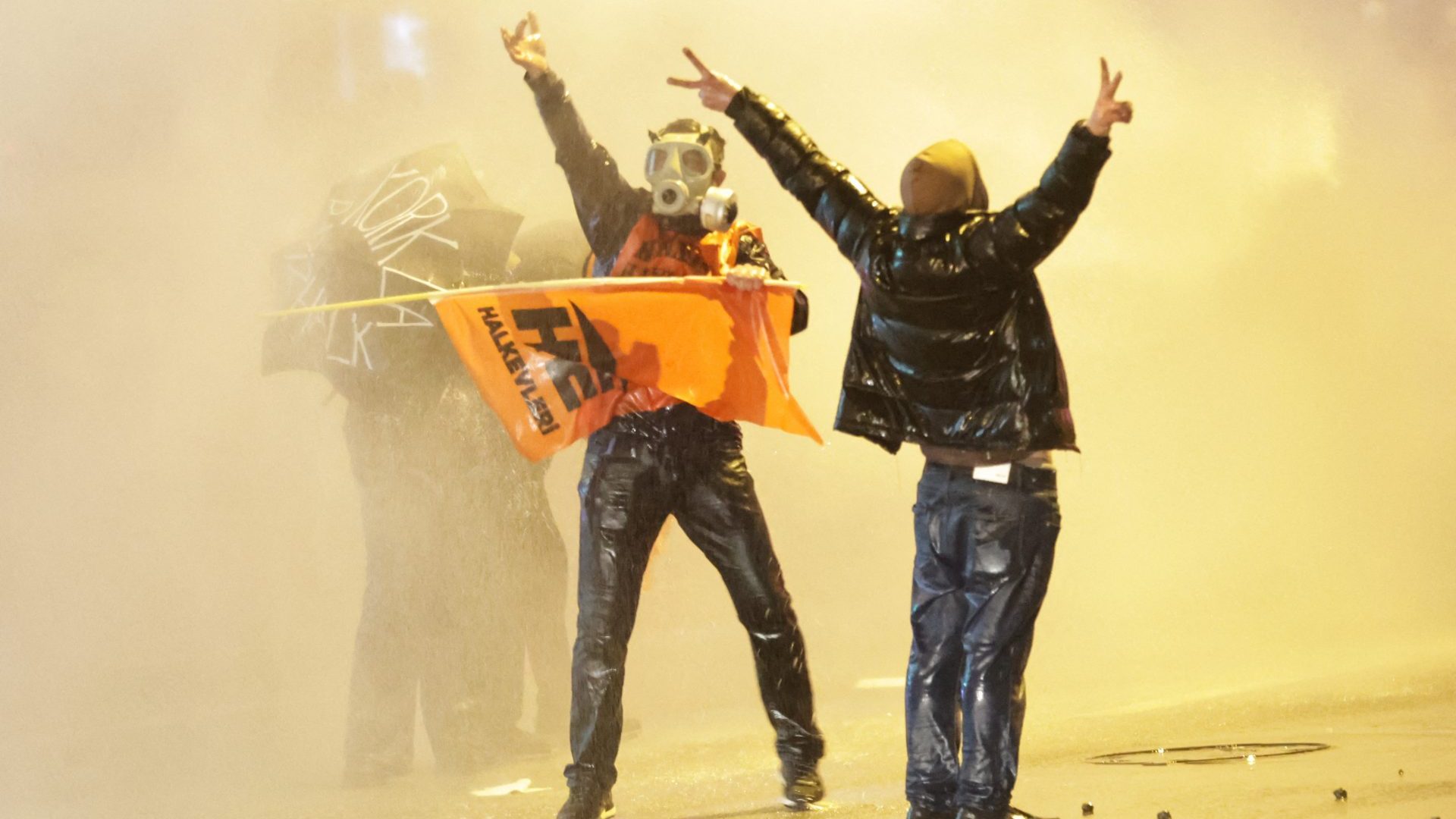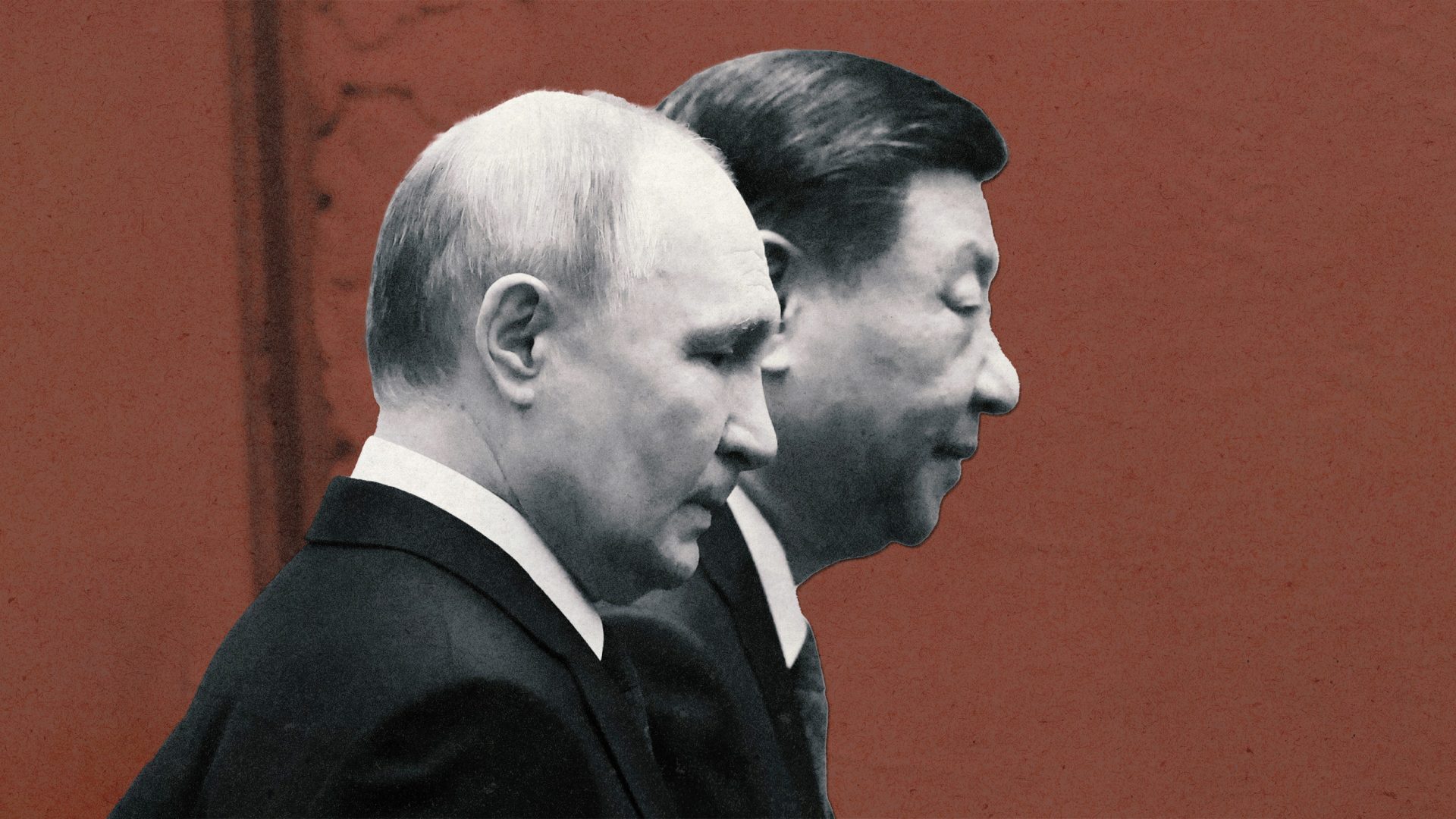On March 19, the mayor of Istanbul and leading opposition figure Ekrem İmamoğlu was detained by the Turkish police over allegations of corruption and supporting terrorism. Protests erupted almost instantly.
What began as a demonstration in front of Istanbul’s city hall in Saraçhane soon spread to universities and cities nationwide, including to president Recep Tayyip Erdoğan strongholds, such as Konya, Trabzon, and even his hometown of Rize. The protests, which were initially focused on İmamoğlu’s release, quickly evolved into broader anti-government demonstrations.
There were a lot of young people at the protests and many of them were scared. A large number of demonstrators covered their faces, not just for protection against tear gas, but also out of fear of being identified.
A group of young friends stood hesitantly, trying to hold up their makeshift signs. When I asked them how they felt, one young woman admitted, “I am scared… But what if this is our last chance at freedom? I’m scared of the tear gas, or worse. But it’s not like they can arrest all of us, right?”
For many young people, this was their first time experiencing mass protests. They’ve grown up in an era where opposition-led street demonstrations were rare.
One student, holding a sign reading “Kahrolsun istibdat, yaşasın hürriyet!” (“Down with despotism, long live freedom!”), told me to make sure I didn’t include his face in my photos.
The timing of İmamoğlu’s arrest was no coincidence. Just a day earlier, Istanbul University had annulled his degree. Since presidential candidates in Turkey must hold a university diploma, the decision essentially blocked İmamoğlu from running as president.
This manoeuvre reignited a long-standing political controversy. Erdoğan’s Justice and Development Party and the opposition have frequently clashed over education credentials. In 2014, when Erdoğan first ran for president, opposition figures questioned the legitimacy of his diploma, alleging it was fabricated.
This is why the protesters in Saraçhane were shouting “Diplomasız Erdoğan!” (“Erdoğan without a diploma!”) alongside “Hükümet istifa” (“Government, resign!”).
Amid the demonstrations, I spoke to a student from Istanbul University, who was worried but also angry about the way higher education had become a political plaything. “If they can cancel my diploma without any reason,” the student said, “then why am I even studying?”
The arrest came just days before İmamoğlu’s party was due to start selecting its presidential candidate. In the same operation, two district mayors from Istanbul were also detained: Resul Emrah Şahan, mayor of Şişli, and Mehmet Murat Çalık, mayor of Beylikdüzü. More than 100 others, including journalists and businesspeople, were also detained.
İmamoğlu is accused of leading a criminal organisation, corruption, extortion, bribery, and money laundering. But perhaps the most politically explosive charge was that of aiding the Kurdistan Workers’ Party, which is designated as a terrorist organisation by Turkey and its western allies.
The sense of outrage at these obviously political arrests brought out the demonstrators. In reaction to the unrest, Erdoğan has used his usual rhetoric, framing the demonstrations as a clash between the “pious majority” (his voter base) and a secular urban elite. But it hasn’t worked this time. People in Turkey are getting tired of their strongman leader, who has been unable to solve the nation’s most acute problems. Of these, the greatest failure has been his inability to do anything about the punishing cost-of-living crisis and soaring inflation.
That’s why, among the crowds of demonstrating youngsters, there are also a substantial number of retirees. One 70-year-old woman said. “We are suffocating. We can not live with our pension. I want my grandsons to live in freedom.”
At a polling station, I met an elderly man wearing a takke, the small cap worn by many Muslim men. “There’s no way a proper religious person should accept this injustice,” he told me. “I cried when Erdoğan was jailed years ago, and I voted for him every chance I got. How dare I not cry now that İmamoğlu is jailed? We don’t believe for a second that he did anything wrong.”
İmamoğlu’s status has now shifted from detention to pre-trial imprisonment. But his party went ahead with its presidential primary anyway: 14.85 million people voted for him to become the party’s presidential candidate.
Celal Budak is a freelance writer living in Istanbul



